

The Noark Ex9MD series offers advanced moulded case circuit breakers (MCCB) specifically designed for DC circuits, particularly effective in high-c...
View full detailsCircuit breakers are available for both AC (Alternating Current) and DC (Direct Current) systems and act as automatic safety switches, that interrupt the flow of electricity in the event of an overload or a short circuit. In AC systems, they protect home appliances, lighting and other electrical equipment, swiftly cutting off power when a fault is detected to prevent damage and fire risks. DC circuit breakers are crucial in applications like solar power and battery systems, electric vehicles, and data centers, where they safeguard against the unique characteristics and potential hazards of DC electricity, such as arc formation.
Fuses are another critical component in electrical safety. A fuse contains a metal wire or filament that melts when too much current flows through it, thereby interrupting the circuit and stopping the flow of electricity. Fuses are a one-time use safety device, meaning they need to be replaced after they have operated, but their simplicity and reliability make them a vital part of electrical safety, especially in protecting more delicate electronic devices and systems.
Factors like the type of load, current rating, and specific characteristics of the electrical supply (AC or DC) must be considered. In AC systems, the choice depends on factors like the power rating of connected devices and the nature of the electrical load (resistive, inductive, or capacitive).
In DC systems, considerations include the voltage level and the nature of the DC source (solar panels, batteries, etc.). Professional guidance is recommended to ensure the correct specification and installation of these protective devices.
Contact Buzz Energy Systems for more information regarding selecting the right protection for your system.

 Sale
Sale
The Noark Ex9MD series offers advanced moulded case circuit breakers (MCCB) specifically designed for DC circuits, particularly effective in high-c...
View full details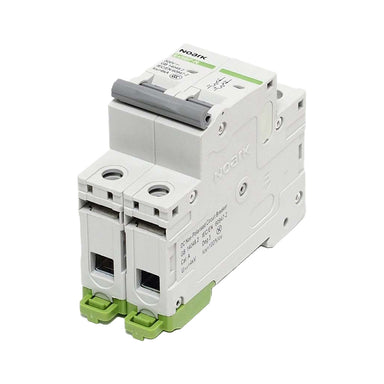
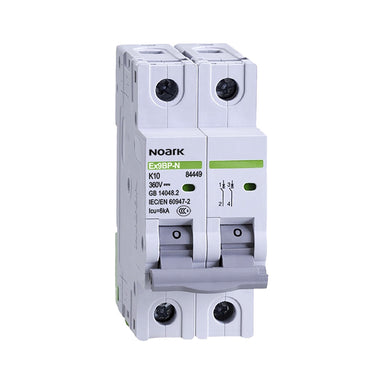 Save $-38.00
Save $-38.00
Noark Ex9BN 10A 2-Pole 360VDC Miniature Circuit Breaker – Non-Polarised DC Protection for Solar and Industrial Applications Note: Minimum order va...
View full details
 Sale
Sale
Zj Beny 32A 4P Solar PV DC Isolator with enclosure 1200VDC. ZJBENY is the most widely used and popular brand in Australian solar PV installations...
View full details
 Save $-408.00
Save $-408.00
The ZJ Beny PV combiner box protects solar equipment against overcurrent, surge events and electrical faults- helping extend the lifespan of your s...
View full details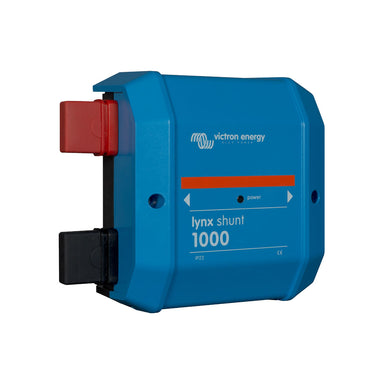
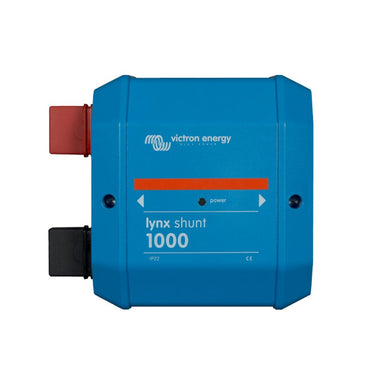 Save $-542.00
Save $-542.00
The Lynx Shunt VE.Can is a 1000A positive busbar and shunt in the modular Lynx format. The Lynx Shunt has space for a main system fuse (Suits CNN F...
View full details
 Save $-338.00
Save $-338.00
A modular DC busbar, with locations for four AMG/MEGA DC fuses. Part of the modular Lynx distribution system. It will monitor the status of each ...
View full details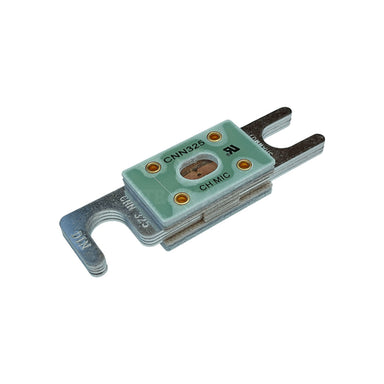 Save $-92.00
Save $-92.00
The Lynx VE.Can has a space for a main fuse. This space has been designed to fit a CNN fuse. A 325A/80V fuse is available from Victron Energy (CIP1...
View full details
